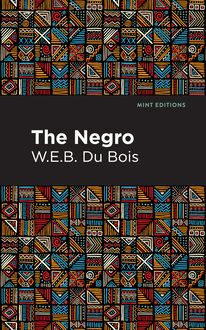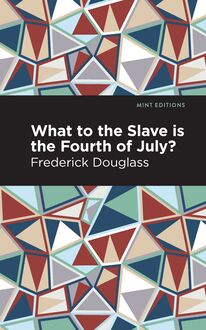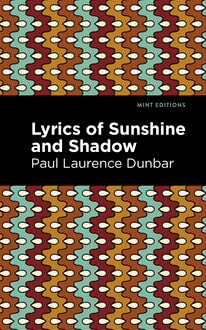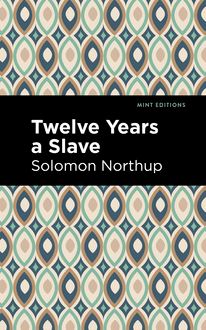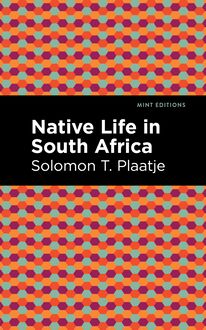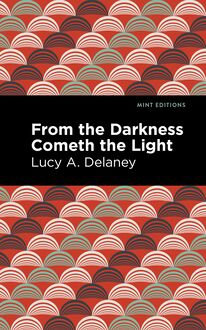-
 Univers
Univers
-
 Ebooks
Ebooks
-
 Livres audio
Livres audio
-
 Presse
Presse
-
 Podcasts
Podcasts
-
 BD
BD
-
 Documents
Documents
-
- Cours
- Révisions
- Ressources pédagogiques
- Sciences de l’éducation
- Manuels scolaires
- Langues
- Travaux de classe
- Annales de BEP
- Etudes supérieures
- Maternelle et primaire
- Fiches de lecture
- Orientation scolaire
- Méthodologie
- Corrigés de devoir
- Annales d’examens et concours
- Annales du bac
- Annales du brevet
- Rapports de stage
La lecture à portée de main
Vous pourrez modifier la taille du texte de cet ouvrage
Découvre YouScribe en t'inscrivant gratuitement
Je m'inscrisDécouvre YouScribe en t'inscrivant gratuitement
Je m'inscrisEn savoir plus
Vous pourrez modifier la taille du texte de cet ouvrage
En savoir plus

Description
“This may be the most important story ever written by a slave woman, capturing as it does the gross indignities as well as the subtler social arrangements of the time.”-Kirkus Review
“Of female slave narratives, Harriet Jacobs's Incidents in the Life of a Slave Girl, Written by Herself is the crowning achievement. Manifesting a command of rhetorical and narrative strategies rivaled only by that of Frederick Douglass, Jacobs's autobiography is one of the major works of Afro-American literature”-Henry Louis Gates, Jr.
Incidents In the Life of a Slave Girl, the autobiography of Harriet Jacobs, was initially written with the intention of illuminating white abolitionists to the appalling treatment of female slaves in the pre-Civil War South of the United States. The book was later rediscovered in the 1960’s, and it was not until the 1980s that it was proved to be an extraordinary work of autobiographical memoir as opposed to fiction.
In this astonishing book, Harriet Jacobs uses the pseudonym of Linda Brent to recount her story as a slave, a mother, and her eventual escape to the north. Born into a relatively calm life as a young child to slaves, she is taken into the care of a kind mistress when her mother dies. Linda is taught to read and write, and is generally treated with respect. When the mistress passes away Linda is handed over to Dr. Flint. He is a negligent and cruel new master who subsequently pressures Linda for sexual favors, yet she resists his demands for years. In an attempt to circumvent the situation, Linda enters into a relationship with Mr. Sands, a white neighbor who ends up fathering her two children. Expecting that she and her children will be sold to Mr. Sands, Dr. Flint instead decides to subject them to further degradation. Linda escapes and goes into hiding in a small attic, and her children are eventually sold to Mr. Sand. For over seven years, Linda remains in hiding, until she ultimately escapes North to be reunited with her children. Incidents In the Life of a Slave Girl is a devastating yet empowering document that uniquely focuses on the psychological and spiritual effects that bondage had on women slaves and their families.
With an eye-catching new cover, and professionally typeset manuscript, this edition of Incidents in the Life of a Slave Girl is both modern and readable.
Sujets
Informations
| Publié par | Mint Editions |
| Date de parution | 06 octobre 2020 |
| Nombre de lectures | 0 |
| EAN13 | 9781513273143 |
| Langue | English |
| Poids de l'ouvrage | 1 Mo |
Informations légales : prix de location à la page 0,0400€. Cette information est donnée uniquement à titre indicatif conformément à la législation en vigueur.
Extrait
Incidents in the Life of a Slave Girl
Harriet Jacobs
Incidents in the Life of a Slave Girl was first published in 1861.
This edition published by Mint Editions 2020.
ISBN 9781513266206 | E-ISBN 9781513273143
Published by Mint Editions®
minteditionbooks.com
Publishing Director: Jennifer Newens
Project Manager: Gabrielle Maudiere
Design & Production: Rachel Lopez Metzger
Typesetting: Westchester Publishing Services
C ONTENTS P REFACE BY THE A UTHOR I. C HILDHOOD II. T HE N EW M ASTER AND M ISTRESS III. T HE S LAVES ’ N EW Y EAR ’ S D AY IV. T HE S LAVE W HO D ARED TO F EEL L IKE A M AN V. T HE T RIALS OF G IRLHOOD VI. T HE J EALOUS M ISTRESS VII. T HE L OVER VIII. W HAT S LAVES ARE T AUGHT TO T HINK OF THE N ORTH IX. S KETCHES OF N EIGHBORING S LAVEHOLDERS X. A P ERILOUS P ASSAGE IN THE S LAVE G IRL ’ S L IFE XI. T HE N EW T IE TO L IFE XII. F EAR OF I NSURRECTION XIII. T HE C HURCH AND S LAVERY XIV. A NOTHER L INK TO L IFE XV. C ONTINUED P ERSECUTIONS XVI. S CENES AT THE P LANTATION XVII. T HE F LIGHT XVIII. M ONTHS OF P ERIL XIX. T HE C HILDREN S OLD XX. N EW P ERILS XXI. T HE L OOPHOLE OF R ETREAT XXII. C HRISTMAS F ESTIVITIES XXIII. S TILL IN P RISON XXIV. T HE C ANDIDATE FOR C ONGRESS XXV. C OMPETITION IN C UNNING XXVI. I MPORTANT E RA IN MY B ROTHER ’ S L IFE XXVII. N EW D ESTINATION FOR THE C HILDREN XXVIII. A UNT N ANCY XXIX. P REPARATIONS FOR E SCAPE XXX. N ORTHWARD B OUND XXXI. I NCIDENTS IN P HILADELPHIA XXXII. T HE M EETING OF M OTHER AND D AUGHTER XXXIII. A H OME F OUND XXXIV. T HE O LD E NEMY A GAIN XXXV. P REJUDICE A GAINST C OLOR XXXVI. T HE H AIRBREADTH E SCAPE XXXVII. A V ISIT TO E NGLAND XXXVIII. R ENEWED I NVITATIONS TO G O S OUTH XXXIX. T HE C ONFESSION XL. T HE F UGITIVE S LAVE L AW XLI. F REE A T L AST
P REFACE BY THE A UTHOR
R eader be assured this narrative is no fiction. I am aware that some of my adventures may seem incredible; but they are, nevertheless, strictly true. I have not exaggerated the wrongs inflicted by Slavery; on the contrary, my descriptions fall far short of the facts. I have concealed the names of places, and given persons fictitious names. I had no motive for secrecy on my own account, but I deemed it kind and considerate towards others to pursue this course.
I wish I were more competent to the task I have undertaken. But I trust my readers will excuse deficiencies in consideration of circumstances. I was born and reared in Slavery; and I remained in a Slave State twenty-seven years. Since I have been at the North, it has been necessary for me to work diligently for my own support, and the education of my children. This has not left me much leisure to make up for the loss of early opportunities to improve myself; and it has compelled me to write these pages at irregular intervals, whenever I could snatch an hour from household duties.
When I first arrived in Philadelphia, Bishop Paine advised me to publish a sketch of my life, but I told him I was altogether incompetent to such an undertaking. Though I have improved my mind somewhat since that time, I still remain of the same opinion; but I trust my motives will excuse what might otherwise seem presumptuous. I have not written my experiences in order to attract attention to myself; on the contrary, it would have been more pleasant to me to have been silent about my own history. Neither do I care to excite sympathy for my own sufferings. But I do earnestly desire to arouse the women of the North to a realizing sense of the condition of two millions of women at the South, still in bondage, suffering what I suffered, and most of them far worse. I want to add my testimony to that of abler pens to convince the people of the Free States what Slavery really is. Only by experience can any one realize how deep, and dark, and foul is that pit of abominations. May the blessing of God rest on this imperfect effort in behalf of my persecuted people!
—Linda Brent 1
1 Pseudonym of Harriet Jacobs
Chapter I
C HILDHOOD
I was born a slave; but I never knew it till six years of happy childhood had passed away. My father was a carpenter, and considered so intelligent and skilful in his trade, that, when buildings out of the common line were to be erected, he was sent for from long distances, to be head workman. On condition of paying his mistress two hundred dollars a year, and supporting himself, he was allowed to work at his trade, and manage his own affairs. His strongest wish was to purchase his children; but, though he several times offered his hard earnings for that purpose, he never succeeded. In complexion my parents were a light shade of brownish yellow, and were termed mulattoes. They lived together in a comfortable home; and, though we were all slaves, I was so fondly shielded that I never dreamed I was a piece of merchandise, trusted to them for safe keeping, and liable to be demanded of them at any moment. I had one brother, William, who was two years younger than myself—a bright, affectionate child. I had also a great treasure in my maternal grandmother, who was a remarkable woman in many respects. She was the daughter of a planter in South Carolina, who, at his death, left her mother and his three children free, with money to go to St. Augustine, where they had relatives. It was during the Revolutionary War; and they were captured on their passage, carried back, and sold to different purchasers. Such was the story my grandmother used to tell me; but I do not remember all the particulars. She was a little girl when she was captured and sold to the keeper of a large hotel. I have often heard her tell how hard she fared during childhood. But as she grew older she evinced so much intelligence, and was so faithful, that her master and mistress could not help seeing it was for their interest to take care of such a valuable piece of property. She became an indispensable personage in the household, officiating in all capacities, from cook and wet nurse to seamstress. She was much praised for her cooking; and her nice crackers became so famous in the neighborhood that many people were desirous of obtaining them. In consequence of numerous requests of this kind, she asked permission of her mistress to bake crackers at night, after all the household work was done; and she obtained leave to do it, provided she would clothe herself and her children from the profits. Upon these terms, after working hard all day for her mistress, she began her midnight bakings, assisted by her two oldest children. The business proved profitable; and each year she laid by a little, which was saved for a fund to purchase her children. Her master died, and the property was divided among his heirs. The widow had her dower in the hotel which she continued to keep open. My grandmother remained in her service as a slave; but her children were divided among her master’s children. As she had five, Benjamin, the youngest one, was sold, in order that each heir might have an equal portion of dollars and cents. There was so little difference in our ages that he seemed more like my brother than my uncle. He was a bright, handsome lad, nearly white; for he inherited the complexion my grandmother had derived from Anglo-Saxon ancestors. Though only ten years old, seven hundred and twenty dollars were paid for him. His sale was a terrible blow to my grandmother, but she was naturally hopeful, and she went to work with renewed energy, trusting in time to be able to purchase some of her children. She had laid up three hundred dollars, which her mistress one day begged as a loan, promising to pay her soon. The reader probably knows that no promise or writing given to a slave is legally binding; for, according to Southern laws, a slave, being property, can hold no property. When my grandmother lent her hard earnings to her mistress, she trusted solely to her honor. The honor of a slaveholder to a slave!
To this good grandmother I was indebted for many comforts. My brother Willie and I often received portions of the crackers, cakes, and preserves, she made to sell; and after we ceased to be children we were indebted to her for many more important services.
Such were the unusually fortunate circumstances of my early childhood. When I was six years old, my mother died; and then, for the first time, I learned, by the talk around me, that I was a slave. My mother’s mistress was the daughter of my grandmother’s mistress. She was the foster sister of my mother; they were both nourished at my grandmother’s breast. In fact, my mother had been weaned at three months old, that the babe of the mistress might obtain sufficient food. They played together as children; and, when they became women, my mother was a most faithful servant to her whiter foster sister. On her death-bed her mistress promised that her children should never suffer for any thing; and during her lifetime she kept her word. They all spoke kindly of my dead mother, who had been a slave merely in name, but in nature was noble and womanly. I grieved for her, and my young mind was troubled with the thought who would now take care of me and my little brother. I was told that my home was now to be with her mistress; and I found it a happy one. No toilsome or disagreeable duties were imposed on me. My mistress was so kind to me that I was always glad to do her bidding, and proud to labor for her as much as my young years would permit. I would sit by her side for hours, sewing diligently, with a heart as free from care as that of any free-born white child. When she thought I was tired, she would send me out to run and jump; and away I bounded, to gather berries or flowers to decorate her room. Those were happy days—too happy to last. The slave child had no thought for the morrow; but there came that blight, which too surely waits on every human being born to be a chattel.
When I was nearly twelve years old, my kind mistress sickened and died. As I saw the cheek grow paler,
-
 Univers
Univers
-
 Ebooks
Ebooks
-
 Livres audio
Livres audio
-
 Presse
Presse
-
 Podcasts
Podcasts
-
 BD
BD
-
 Documents
Documents
-
Jeunesse
-
Littérature
-
Ressources professionnelles
-
Santé et bien-être
-
Savoirs
-
Education
-
Loisirs et hobbies
-
Art, musique et cinéma
-
Actualité et débat de société
-
Jeunesse
-
Littérature
-
Ressources professionnelles
-
Santé et bien-être
-
Savoirs
-
Education
-
Loisirs et hobbies
-
Art, musique et cinéma
-
Actualité et débat de société
-
Actualités
-
Lifestyle
-
Presse jeunesse
-
Presse professionnelle
-
Pratique
-
Presse sportive
-
Presse internationale
-
Culture & Médias
-
Action et Aventures
-
Science-fiction et Fantasy
-
Société
-
Jeunesse
-
Littérature
-
Ressources professionnelles
-
Santé et bien-être
-
Savoirs
-
Education
-
Loisirs et hobbies
-
Art, musique et cinéma
-
Actualité et débat de société
- Cours
- Révisions
- Ressources pédagogiques
- Sciences de l’éducation
- Manuels scolaires
- Langues
- Travaux de classe
- Annales de BEP
- Etudes supérieures
- Maternelle et primaire
- Fiches de lecture
- Orientation scolaire
- Méthodologie
- Corrigés de devoir
- Annales d’examens et concours
- Annales du bac
- Annales du brevet
- Rapports de stage
